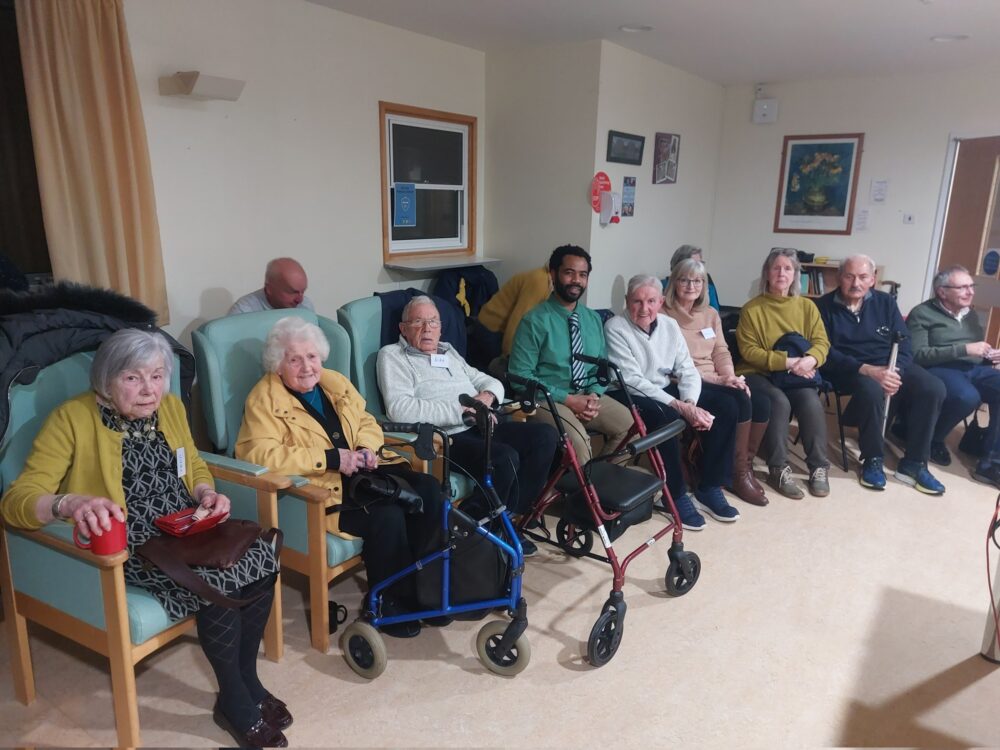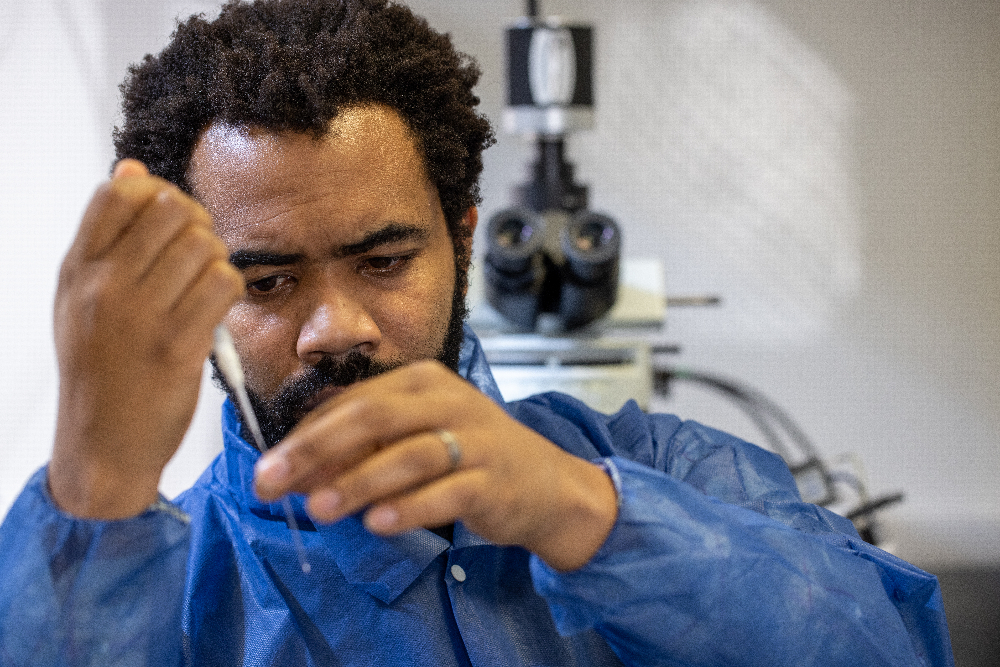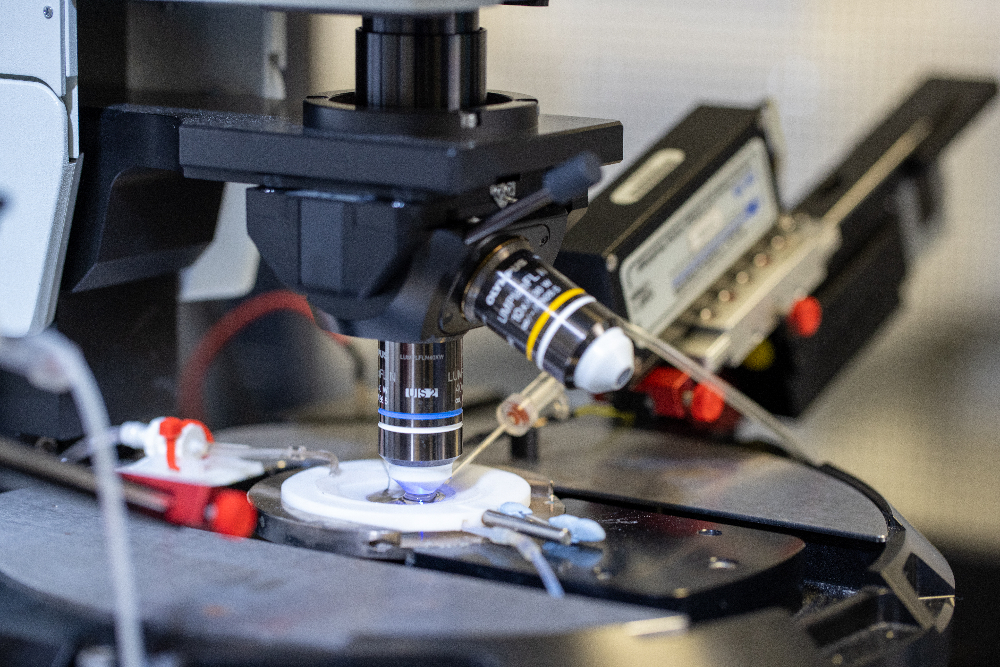Top scientist thanks Chepstow Parkinson’s group for contribution to pioneering research

A top scientist has thanked members of the Chepstow and District Parkinson’s Support Group for its contribution to pioneering research.
Dr Dayne Beccano-Kelly, whose three-year study at Cardiff University is looking to improve our understanding of the condition, and lead to more effective treatments, has hailed the group for its “generous and humbling” donation of £2,500.
The project is being funded through a substantial £324,695 grant from Parkinson’s UK, which has been made possible by the funding generated by volunteers as well as other supporters.

Ana Palazon, Country Director of Parkinson’s UK Cymru, has hailed the “fantastic” Parkinson’s community for its contributions to the grant.
Dr Beccano-Kelly’s project will involve using stem cells generated by collaborators that have been made from skin cells that have been donated by people who have the condition using a combination of “reprogramming factors”.
Stem cells have the potential to become almost any other cell in the body, making them a useful tool to study conditions such as Parkinson’s, as they can be made into neurons, making studying the brain more accessible.
Producing stem cells has been likened to something out of the 2008 fantasy romantic drama film ‘The Curious Case of Benjamin Button’, in which Brad Pitt plays a character who ages in reverse.
Once this is complete, the newly-formed stem cells are turned into neurons which are examined in a complex and intricate set of experiments using a high tech piece of kit called an electrophysiological rig.

The rig is used to examine the electrical communication the cells in the brain use to talk with one another and coordinate specific tasks. This communication between the different cells in the brain is vital to control how people speak, move, think, and feel.
Brain cells also have to perform general “housekeeping” functions such as “spring cleaning”: removing old workers (proteins) that have served their purpose. However, researchers have shown that this recycling process might not work properly for people with Parkinson’s. This could contribute to the dysfunction and eventual death of brain cells which are responsible for producing a brain chemical called dopamine.
People with Parkinson’s don’t have enough of the chemical dopamine in their brain because some of the brain cells that make it stop functioning correctly.
The research is looking at how the communication between cells and the cells’ recycling system are linked. Both are known to be affected in people with Parkinson’s, but it is not clear how they impact upon one another.
Previous research, which has looked at these in isolation, has shown that the two problems could be linked, but it is not known whether one problem causes the other and how they impact one another.
Dr Dayne Beccano-Kelly’s team at the UK Dementia Research Institute at Cardiff University wants to know how cells in the brain deteriorate over time in those with the condition, which could aid the development of earlier and better targeted treatments.
Dr Dayne Beccano-Kelly said: “We feel incredibly humbled and are very grateful to the Chepstow and District Parkinson’s Support Group, who have made a generous contribution to our recent award. It is thanks to their support and others like them that we are able to conduct this research.
Ana Palazon, Country Director of Parkinson’s UK Cymru, said: “We are delighted to be funding the pioneering work of Dr Dayne Beccano-Kelly and his team right here in Wales.
“Parkinson’s is the fastest neurological condition in the world, and it is vital that we gain a better understanding of how the cells in the brain communicate with each other in people who have the condition so we can develop better targeted and more effective treatments.
“We are incredibly grateful to our fantastic Parkinson’s community because the funding generated by volunteers and many other generous donors helps fund pioneering research like this.”
Stephen Lewis, Treasurer of the Chepstow and District Parkinson’s Support Group, who has been involved with the group since 2008, and whose wife Kate Lewis passed away with the condition aged 79, said: “Each year we try to fundraise and we put various events on through the year, and any money we raise through those, or donations made to the group, we ringfence towards research. At the end of the year we see what money we’ve got available and we send that on.
“This year we found we could allocate our money to specific projects. We looked up the various projects that Parkinson’s UK were running and noticed there was one from Cardiff University on this brain cell recycling. So I put it to the members and we agreed we would allocate it towards that specific project instead of general research.
“We chose this because it’s happening within Wales, and it will hopefully benefit people who have Parkinson’s more generally. We’re going to have been learning more about it because Dr Beccano-Kelly came to one of our group meetings to talk about the research.
Stephen added: “My wife had Parkinson’s for many years and when we moved to this area we joined this local group. Although my wife passed away at the end of 2018, I was Treasurer then and I’ve just continued in the role.
“The group helped myself, my wife and all its other members by supporting people who come along by giving advice and help, and chats between members about how they’re coping with their Parkinson’s, their medication, and any issues they may have. It’s a chat forum between members to help each other.
“We run monthly meetings and we tend to have a speaker each month on different topics. We also run a number of different events to raise money. We also run an art group which is very useful and very therapeutic.”




